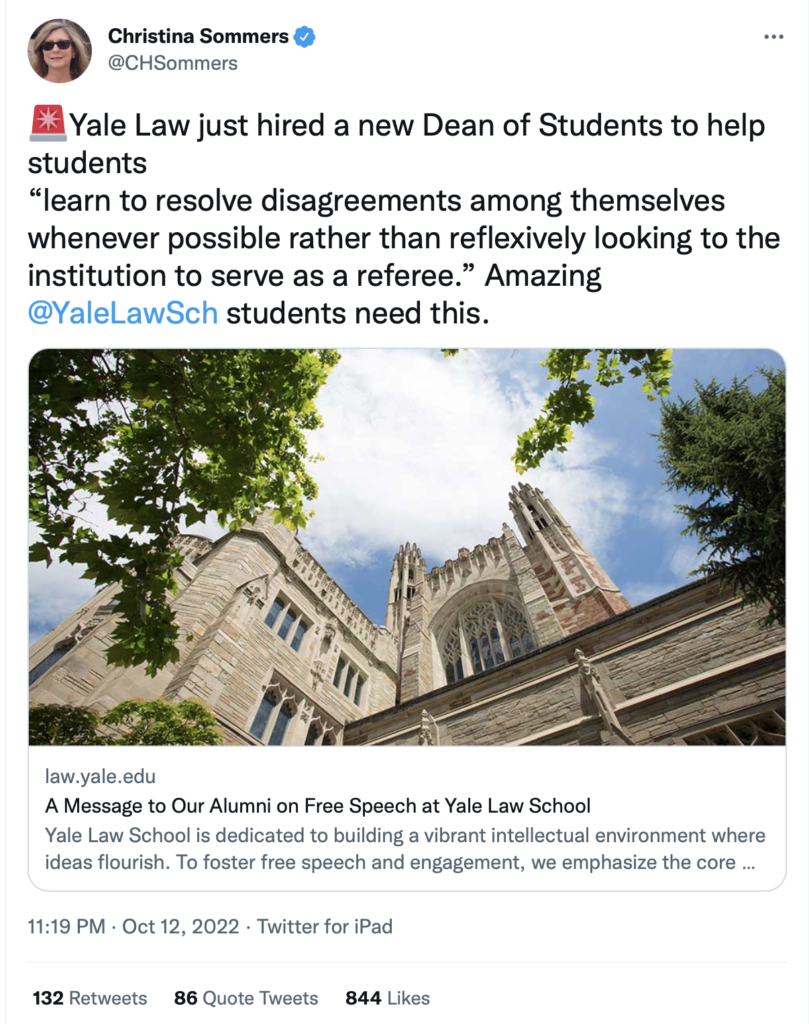UNC Adopts Chicago Principles and the Kalven Committee Report Principles
Hopefully we will see a lot more universities adopting the Chicago Principles. UNC recently took this big step . . . and more:
On July 27, the University of North Carolina (UNC)–Chapel Hill’s Board of Trustees made a strong, new commitment to safeguard the free exchange of ideas on campus. Colleges and universities face immense pressure to comport with majority beliefs, but UNC’s trustees proactively resolved to maintain institutional neutrality on controversial political and social issues.
The trustees’ unanimous resolution built on the previous work of the faculty. To the credit of the UNC Faculty Assembly, it adopted in 2018 the Chicago Principles on Freedom of Expression, an action affirmed by the trustees in March 2021. The faculty resolution read, in part, “By reaffirming a commitment to full and open inquiry, robust debate, and civil discourse we also affirm the intellectual rigor and open-mindedness that our community may bring to any forum where difficult, challenging, and even disturbing ideas are presented.”
The trustees took a remarkable further step. In addition to confirming once more the decision of the Faculty Assembly, they put the university in the vanguard of institutions committed to a robust heterodoxy of views and opinions by also adopting what is known as the Kalven Committee Report on the University’s Role in Political and Social Action. The UNC resolution notes that the Kalven Report “recognizes that the neutrality of the University on social and political issues ‘arises out of respect for free inquiry and the obligation to cherish a diversity of viewpoints’ and further acknowledges ‘a heavy presumption against the university taking collective action or expressing opinions on the political and social issues of the day.’
For more on the need for universities to maintain institutional neutrality, see Mark McNeilly's article at the HxA Blog: "Universities Should Adopt Institutional Neutrality." An excerpt:
Institutional neutrality is the idea that the university, as the Kalven Report states, “cannot take collective action on the issues of the day without endangering the conditions for its existence and effectiveness.” It comes to this conclusion on the basis of the view that “the mission of the university is the discovery, improvement, and dissemination of knowledge.” The university follows this mission to advance society and humankind. What higher mission could there be?
The instrument of the mission, per the Report, “is the individual faculty member or the individual student. The university is the home and sponsor of critics; it is not itself the critic.” Thus, “to perform its mission in the society, a university must sustain an extraordinary environment of freedom of inquiry and maintain an independence from political fashions, passions, and pressures. A university, if it is to be true to its faith in intellectual inquiry, must embrace, be hospitable to, and encourage the widest diversity of views within its own community.”

